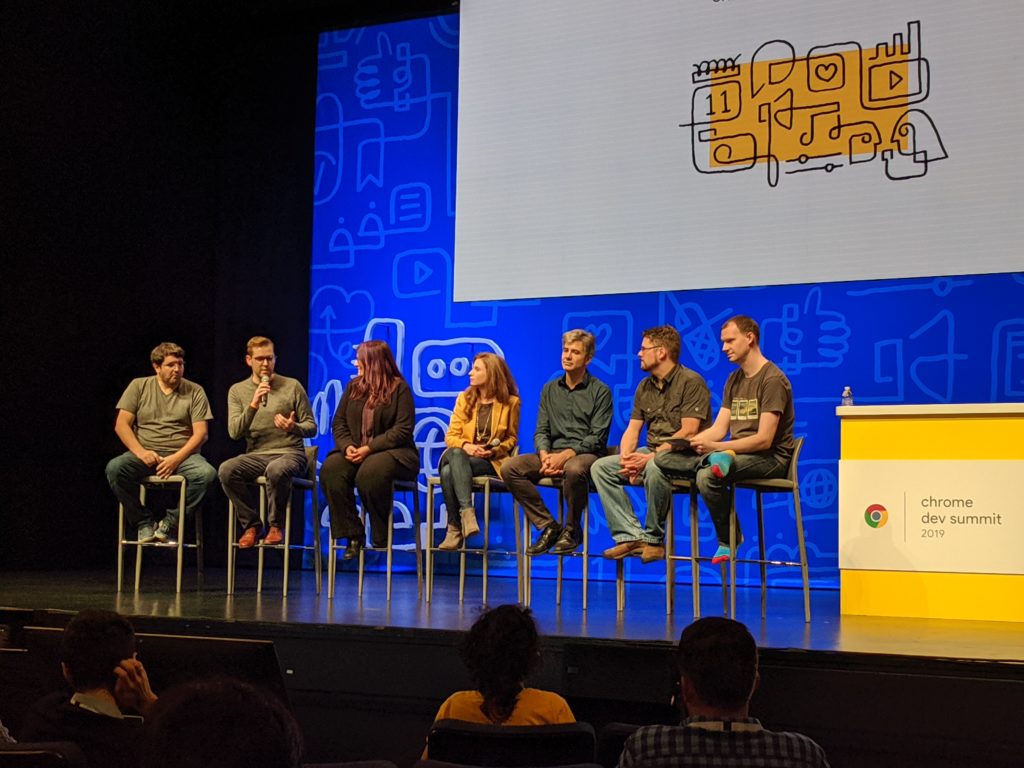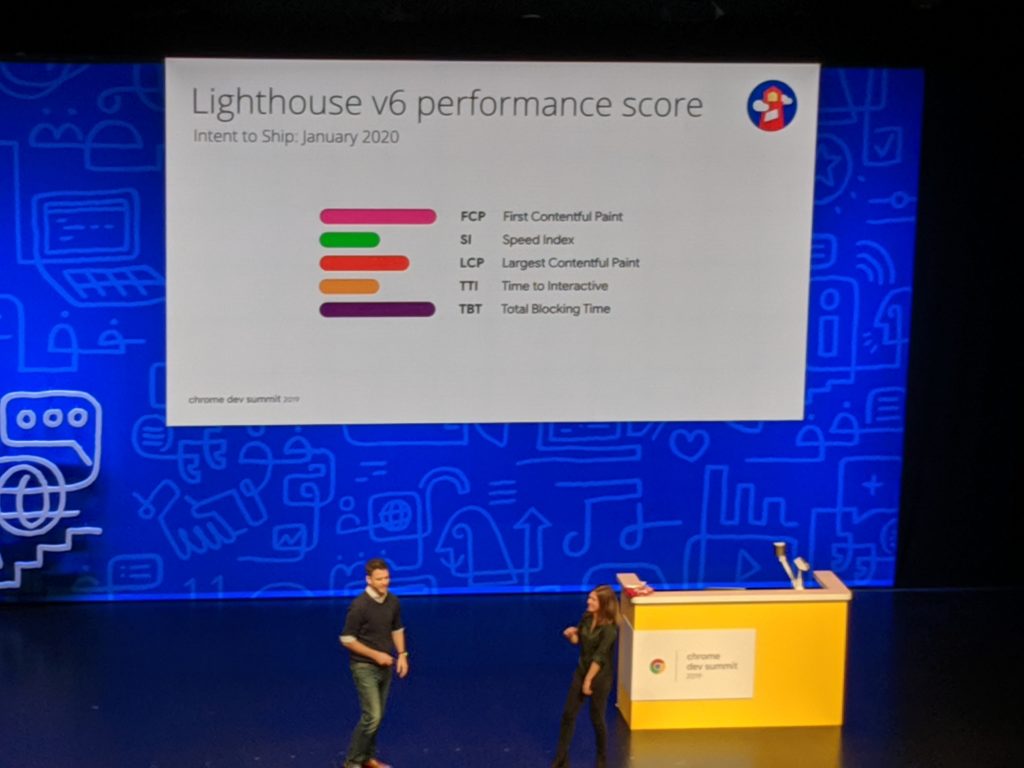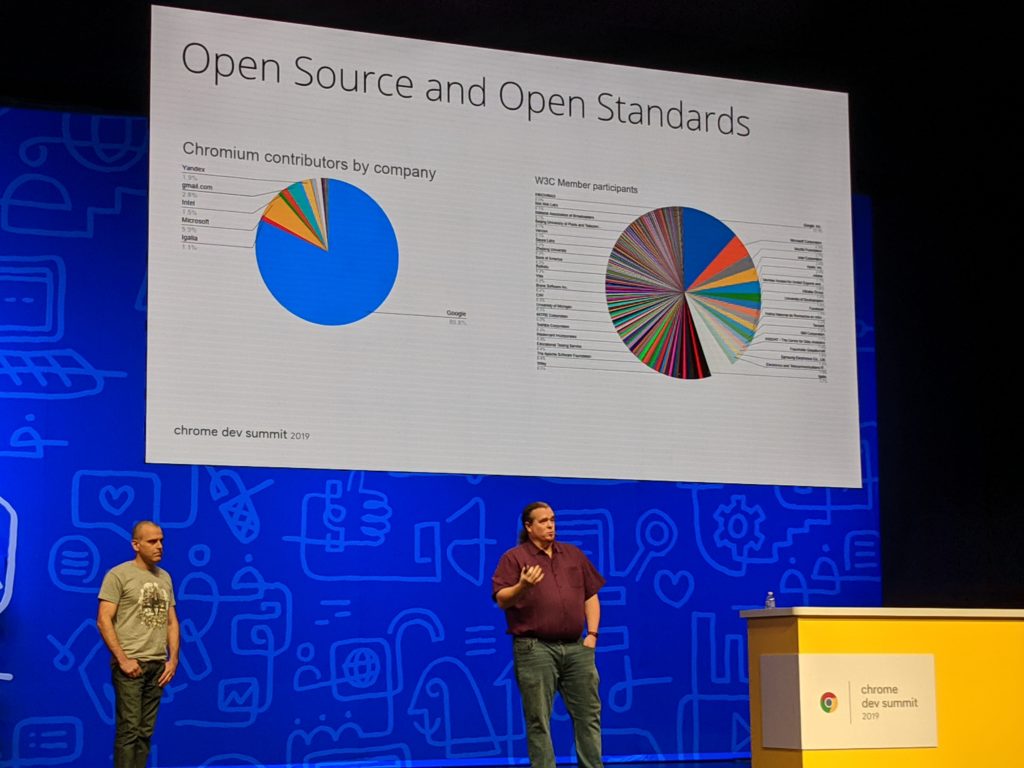7 Key take-aways from Chrome Dev Summit 2019
Posted on by Steve Workman About 4 min reading time
I was lucky enough to go to the Chrome Dev Summit in San Francisco this year. There were a thousand people in the venue, and seven thousand on the wait list, so I'm glad that I could attend in person.
You can see all the videos from the talks at CDS 2019 on this playlist
Here are my 7 key take-aways from the event
The web must get to parity with native
Without saying so explicitly, the web must win and the Chrome team are working towards a future where the web is the go-to development platform for everything. It's going gangbusters on desktop, but on mobile, where the user population are moving towards, it's not the same story.
So, the team is investing heavily in things like project fugu, to create APIs for things like contacts, native file system interaction, bluetooth and NFC. This all has to be done through the standards process, which can be a long road, but it's necessary to ensure interoperability in the web.
However, there's still a long way to go to get the web into the Play/App store
The Chrome leadership panel session threw up a point that both Samsung and Microsoft treat PWAs as first-class citizens in their stores. Google has come out with TWAs - Trusted Web Apps. There is a build and submit step for the store as well, and the tooling provided only works on MacOS right now.
Take a step back from the specific problem and you can see that no one on the stage was happy with the outcome (note - the video of that session is not available online and the full live streams have been taken down). They all want the web to be available, and be discoverable. There is a lot more to be done and it's not perfect, but they have taken a big step forward with TWAs from having no PWAs in the store, to a pretty simple way to create them and deploy them.

It is going to be OK everyone, it's just going to take some more time.
There's a big focus on making the web faster
The speakers all talked about making the web faster, including how they measure this, with upcoming changes to how Lighthouse is going to incorporate new metrics such as Largest Contentful Paint (LCP) and Cumulative Layout Shift (CLS). All these metrics are explained over at https://web.dev/metrics/, and they are now being labelled in the performance tab of the web inspector.
New metrics coming to Lighthouse in V6
They are also experimenting with slow and fast loading indicators and interstitials though they didn't make that much of this during the talk - expect this to change a lot.
Lighthouse is getting a CI mode and a server
https://github.com/GoogleChrome/lighthouse-ci - and I couldn't be happier.

The focus on a faster web extended to making React faster
I was surprised at how much focus there was on React, given that the Web Almanac also launched at this event and it showed that React has just a 4.6% share of the web - though it clearly has a much larger mindshare amongst developers.
During one talk the speakers seemed to recommend that you focus on "UI frameworks" not "view libraries", so Next.js over React. I don't really understand why Google would go all-out in saying do one over the other, and especially the one that needs the most effort to configure to get high performance.
Google told us to focus on those less privileged than ourselves
A lot of talks covered performance, security, and access to data and services for those that can't rely on it - for example, the developing world. They encouraged us to test on devices worse than ours, to look at our data, and to find out what the world is really like outside of our bubbles.
Chrome is secure by default
We've moved on from the pre-HTTPS era where users had to be rewarded for being safe with green labels and checkboxes - we are now in to the part where that is taken for granted and you are warned when things might not be as they seem. The security team are gathering data and doing in-depth research to find out what signals users react to and take action when something is insecure.
Also in security, there was a great talk on WebAuthn, a way to authenticate your users with minimal or no passwords using the capabilities of your devices or things like Titan security keys.
The open standards process is important, and bringing Microsoft in to Chromium is good for the web

It was fantastic to see the Edge team present, and show off all the things they were working on in collaboration with the Chrome team. Microsoft are bringing the best of what they know from accessibility, security and the Windows platform to the table, which will enhance the whole platform.
Open source contributors to Chromium
I'm also quite confident that we can stop developing for IE very soon. Once Edge launches, businesses adopt it and the IE icon goes away, we'll see big drop-offs in IE usage.
And that's it - the event was great and excellently organised. Well done to the MC's as well and everyone behind the scenes. Roll on 2020!